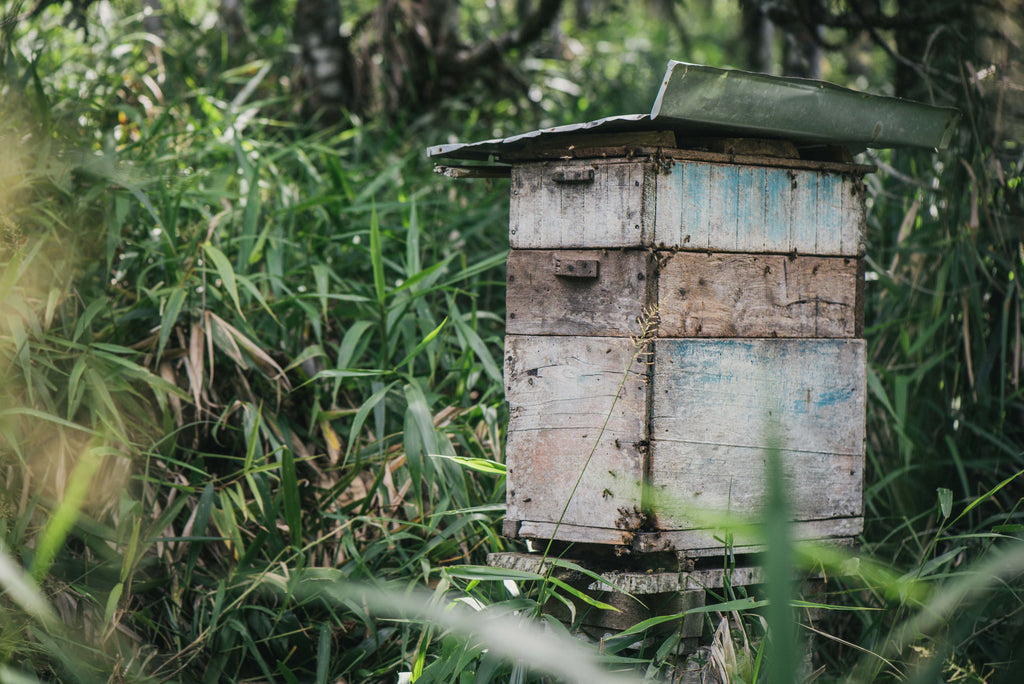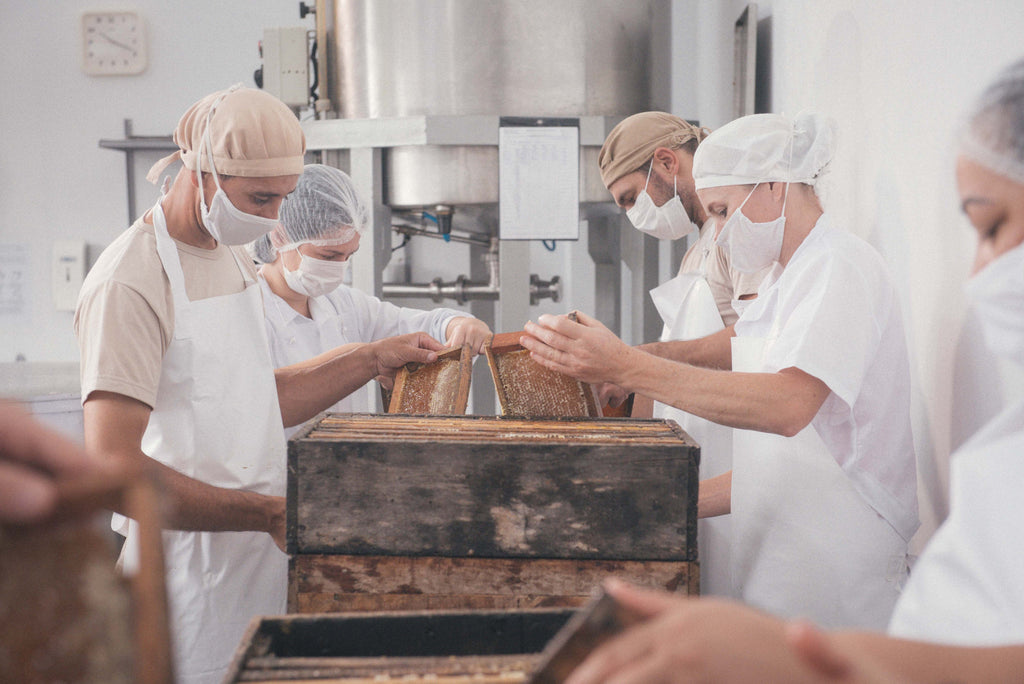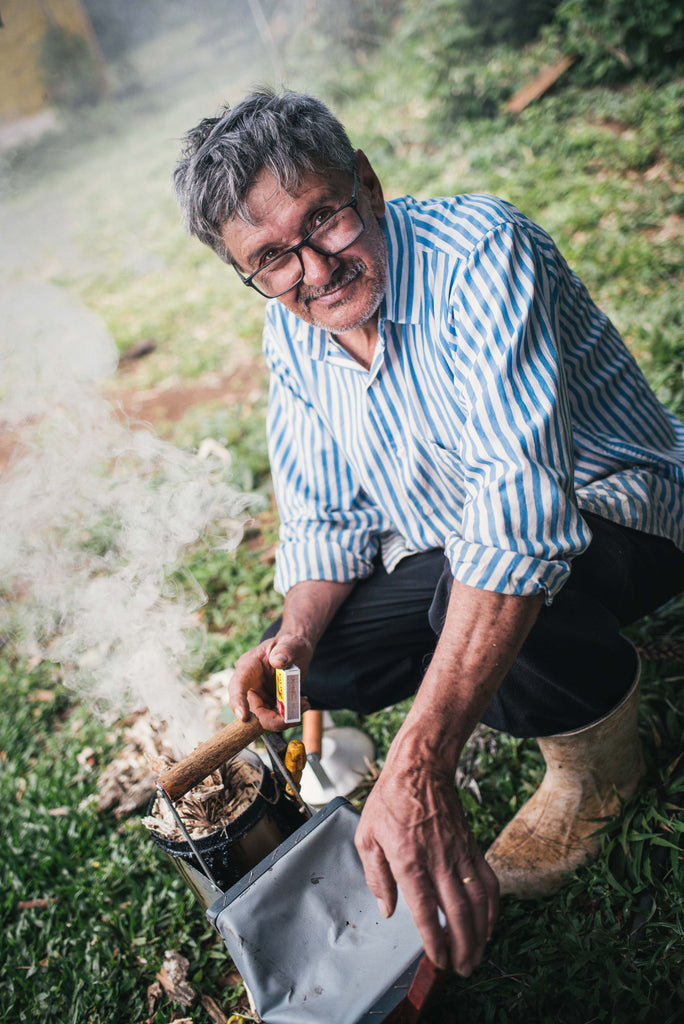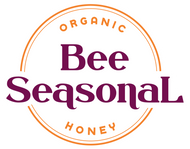Organic Beekeeping – More than Just a Certification
We believe that having a good tasting product is worth nothing if the methods used to produce it are not in line with nature.
That’s why one of our main goals with Bee Seasonal® is to promote sustainable, natural and regenerative beekeeping practices while sourcing some of the most exquisite honeys from around the world.
Ethically Produced Honey - Buy Organic Honey
Beekeeping standards:
In order to guarantee that all our products are harvested sustainably, we decided to work with beekeepers who follow certain guidelines when it comes to bee management and hive placement. We find that the rules established by the European Union are a good start point so that we can set standards. The European Union has been the major contributor to the establishment of organic beekeeping guidelines and other countries have followed suit.

The main points on the European Union Regulation for Organic Beekeeping are:
- Apiaries must be placed in areas (approximately 12.5 sq. mi. or 28 km2) surrounded by native vegetation or organic operations, free of GMOs and pesticides.
- The Beekeepers leave enough honey and pollen for the bees to feed on until next season. Artificial feeding must be avoided at all costs. In the case of life-threatening situations, beekeepers are allowed to feed their bees with organic products. Bee Seasonal encourages beekeepers to save organic honey and pollen from past harvests and feed that to the bees if necessary.
- Practices that cause mutilation, pain, destruction of brood, larvae, and bees are prohibited.
- Hives can only be relocated with the permission of the certification agent.
- No use of chemical glues and plastics for hive construction. Hives must be built using recyclable natural occurring materials such as wood.
- No chemical residues can be used in and around the hives (synthetic pesticides or other materials such as cleaning products or repellents, antibiotics or synthetic medicine, etc.)
- Honey harvesting must be done without the use of synthetic repellents. Destruction of bees in the combs as a method associated with the harvesting of beekeeping products is prohibited. Both removing of supers and honey extraction must be documented.

Uncapping honey by hand at Breyer's facility.
Is organic honey better than conventional?
Certified organic honeys are, by definition, associated with better and more sustainable beekeeping practices. Beekeepers who follow guidelines for organic and natural honey production are in more synergy with the environment around them and with the health of their bees. They only harvest honey when there is surplus, this way bees are guaranteed enough food for the winter months and do not need to be fed with artificial substitutes, a very common practice in conventional beekeeping.
Organic beekeepers also avoid taking part in commercial pollination services. Not taking part in these services puts less stress on bees. Conventional beekeepers many times depend on pollination to make money. This practice is associated with the trucking of the bees across the country searching for the next “cash crop”. This increases the bees' exposure to pesticides and herbicides, which sometimes can end up in conventional honey. Bees that are used for commercial pollination are under more stress and more susceptible to pests and illnesses, which are usually treated with pesticides and synthetic antibiotics, which many times can also be found in conventional honey. To support them, we need to promote their work and buy organic honey.
Having an organic certification is only a part of the bigger picture. Unfortunately, it is very difficult to assure that all honeys stamped with an organic seal were harvested in accordance with more sustainable standards.
In the end, we can only speak for ourselves. We stand behind our honeys and our ethically produced honey standards. We are committed to the most natural and sustainable practices that exist. Our partners are in line with our philosophy and focus on quality and sustainability while investing in their communities.
We need to keep in mind that there are many beekeepers out there who follow sustainable practices while working yet are unable or do not wish to get organic certification for various reasons.
At the end of the day, the most important thing is to know your beekeepers and how they work.

Casimiro. One of the beekeepers in south Brazil.
RAW vs PURE vs ORGANIC vs UNFILTERED HONEY
Whether it’s honey or some of your other favorite products, it seems like the market has become oversaturated with terms like “organic”, “raw”, “pure”, and “unfiltered”. For most of the population, these words are synonymous with one another, and can be very confusing. Here’s our guide that should hopefully clear up the differences between all of these types of honey.
Pure Honey:
Pure honey simply means that there are no added preservatives or extra ingredients. Some commercial honeys might use something like corn syrup to increase the volume, and then add artificial sugars to enhance the flavor. Pure honeys will generally be produced using environmentally friendly practices to maintain the purity and preserve all of the benefits that the honey has to offer.
Raw Honey:
Although pure honey and raw honey may seem to imply the same thing, raw honey is neither heated to the point of pasteurization, nor it is filtered to an extent where pollen has been removed. When honey isn’t pasteurized, it presents certain advantages like the preservation of naturally occurring enzymes, vitamins, and minerals. If you compare raw honey with other standard honeys, you can really taste the difference in how it was produced. For many enthusiasts, raw honey is the best natural honey in the world.
Organic Honey:
These days, it seems like calling something “organic” is just a fad that raises the price. In the world of honey however, organic honey is definitely something special. These honeys are produced free of any synthetic chemicals such as pesticides and antibiotics. Bees are capable of flying far away from their hives hunting for pollen, so the areas around organic honey farm must be considered organic. Some of the finest certified organic honey is produced in Brazil.
Unfiltered Honey:
Filtration processes are used to remove small particles from honey. Unlike straining, which focuses on the removal of large particles like bee debris, this process focuses on the removal of small particles and can remove pollen. In many cases, if honey is labeled as unfiltered, it doesn’t necessarily mean that it is also raw. To ensure that straining procedures are more effective, honey is slowly heated to a liquid state. This combination of organic and unfiltered honey provides you with honey of preserved qualities and benefits.
#everyhoneytellsastory


Hi Theresa!
Forever is a long stretch, but honey can get almost there! Honey is a supersaturated sugar solution and it contains other components that hinder the development of any spoiling microorganism.
We have a nice post on what honey is that talks about this: https://beeseasonal.com/blogs/every-honey-tells-a-story/what-is-honey
If you keep your honey jar shut and avoid that the honey takes in moisture it will stay good for a long time! Unless you eat it first =)
Hi. I read the above comment about the honey possibly spoiling? I have always read and been taught that honey is one of very few foods that typically lasts “forever” because of the chemical makeup of it. Is this not actually the case?
Hi Peter!
Thank you for your question! Our honeys are Certified Organic! They all carry the USDA seal.
Is your honey “certified” organic?
Hi Stephen! Thank you for your question and for sharing the link for this amazing text. We really enjoyed reading it.
The only way of knowing if your honey comes from honey bees or stingless bees is by asking your supplier. At the time of this comment, all our honeys are produced by Africanized Honey Bees.
One of the main complications of having honey produced by stingless bees being exported is the higher water content which these honeys usually have. This can cause fermentation issues and the honey can spoil.
Leave a comment